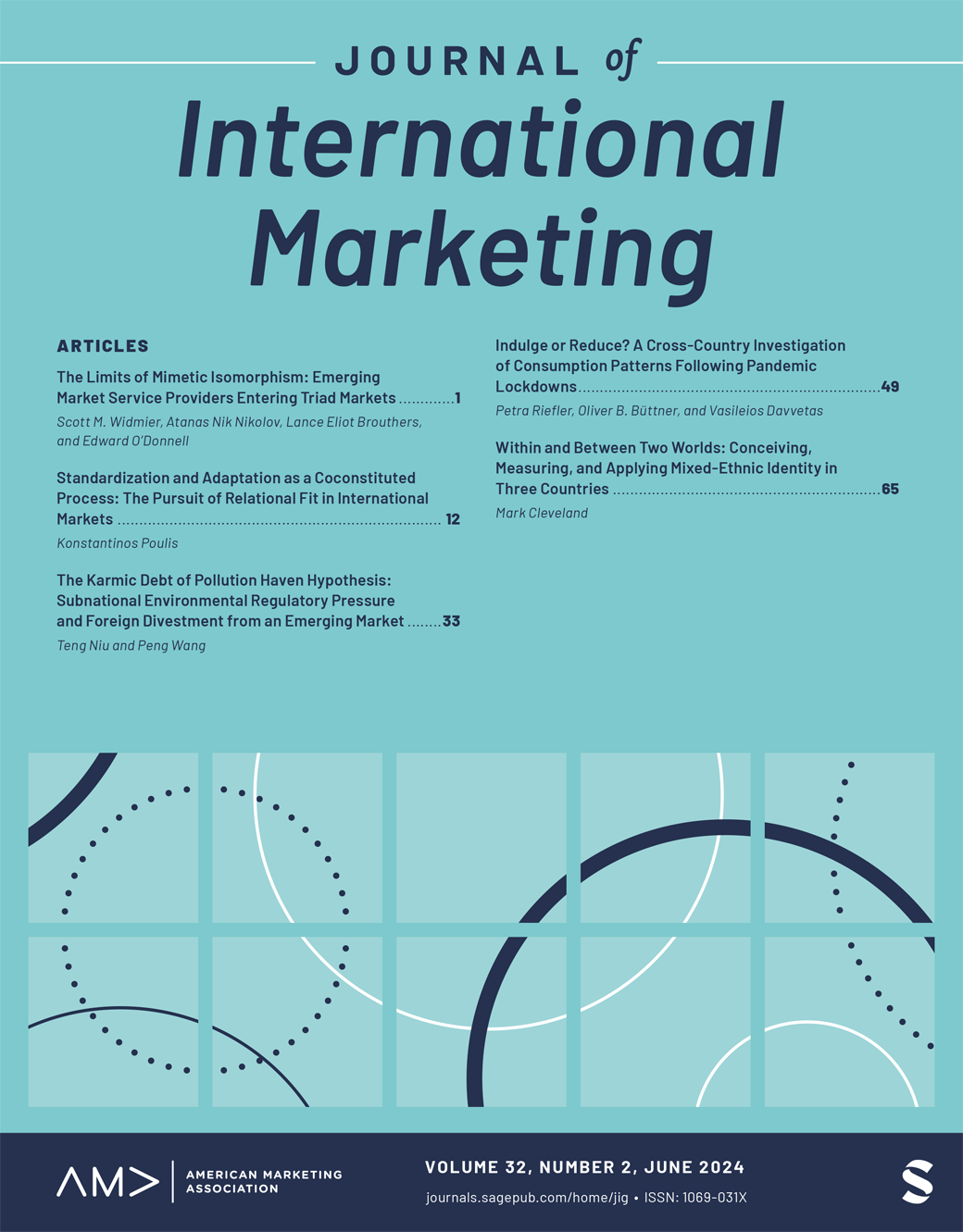The Global/Local Product Attribute: Decomposition, Trivialization, and Price Trade-Offs in Emerging and Developed Markets
IF 4.9
2区 管理学
Q1 BUSINESS
引用次数: 1
Abstract
Accelerating antiglobalization challenges previously undisputed assumptions about the importance of a product's globalness/localness in purchase decisions. Putting these assumptions to test, this article conceptualizes globalness/localness as a distinct product attribute and decomposes its utility into weight and preference components. Subsequently, it offers an equity-theory-based prediction of the attribute's declining relevance/trivialization and quantifies its trade-offs with other attributes by calculating global/local price premiums. Conjoint experiments in two countries (Austria and India) reveal that (1) emerging- (developed-) market consumers exhibit relative preference for global (local) products, (2) emerging-market consumers perceive higher preference inequity between global and local products than developed-market consumers, and (3) the corresponding inequity triggers consumers’ cognitive inequity regulation (manifested through attribute trivialization in developed markets) and behavioral inequity regulation (manifested through asymmetrical willingness to pay for global/local products across developed/emerging markets). In addition, attribute trivialization and price premium tolerance are moderated by consumers’ spatial identities and price segment. The findings contribute to the theoretical debate on the relevance of product globalness/localness in deglobalizing times and inform competitive strategies; segmentation, targeting, and positioning; and international pricing decisions.全球/本地产品属性:新兴市场和发达市场的分解、琐碎化和价格权衡
加速的反全球化挑战了先前无可争议的假设,即产品的全球性/地方性在购买决策中的重要性。为了检验这些假设,本文将全局性/局域性概念化为独特的产品属性,并将其效用分解为权重和偏好组件。随后,它提供了基于股票理论的属性相关性/琐琐化下降的预测,并通过计算全球/本地价格溢价来量化其与其他属性的权衡。在两个国家(奥地利和印度)进行的联合实验表明:(1)新兴(发达)市场消费者对全球(本地)产品表现出相对偏好,(2)新兴市场消费者对全球和本地产品之间偏好不平等的程度高于发达市场消费者。(3)相应的不平等引发消费者的认知不平等监管(表现为发达市场的属性琐细化)和行为不平等监管(表现为发达市场/新兴市场对全球/本地产品的支付意愿不对称)。此外,消费者空间认同和价格区间对属性琐细化和价格溢价容忍有调节作用。研究结果有助于在去全球化时代关于产品全球化/本地化相关性的理论辩论,并为竞争战略提供信息;细分、目标和定位;以及国际定价决策。
本文章由计算机程序翻译,如有差异,请以英文原文为准。
求助全文
约1分钟内获得全文
求助全文
来源期刊

Journal of International Marketing
BUSINESS-
CiteScore
8.70
自引率
17.20%
发文量
28
期刊介绍:
As the globalization of markets continues at a rapid pace, business practitioners and educators alike face the challenge of staying current with the developments. Marketing managers require a source of new information and insights on international business events. International marketing educators require a forum for disseminating their thoughts and research findings. Journal of International Marketing(JIM) is an international, peer-reviewed journal dedicated to advancing international marketing practice, research, and theory. Contributions addressing any aspect of international marketing management are published each quarter.
 求助内容:
求助内容: 应助结果提醒方式:
应助结果提醒方式:


